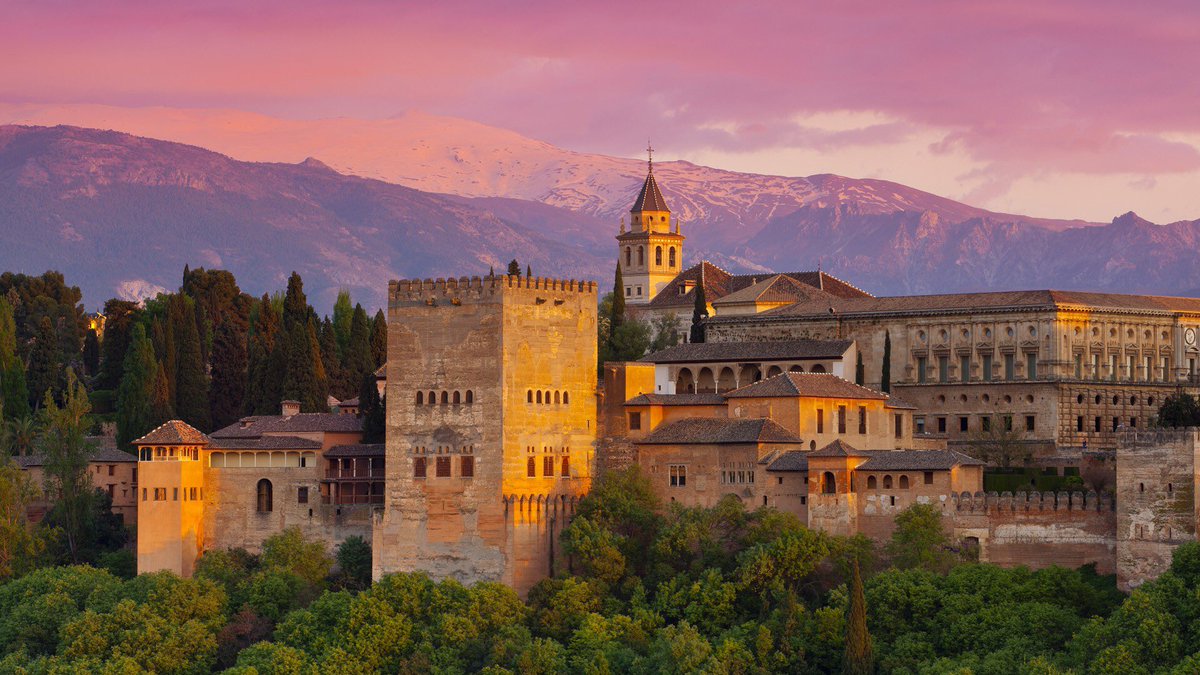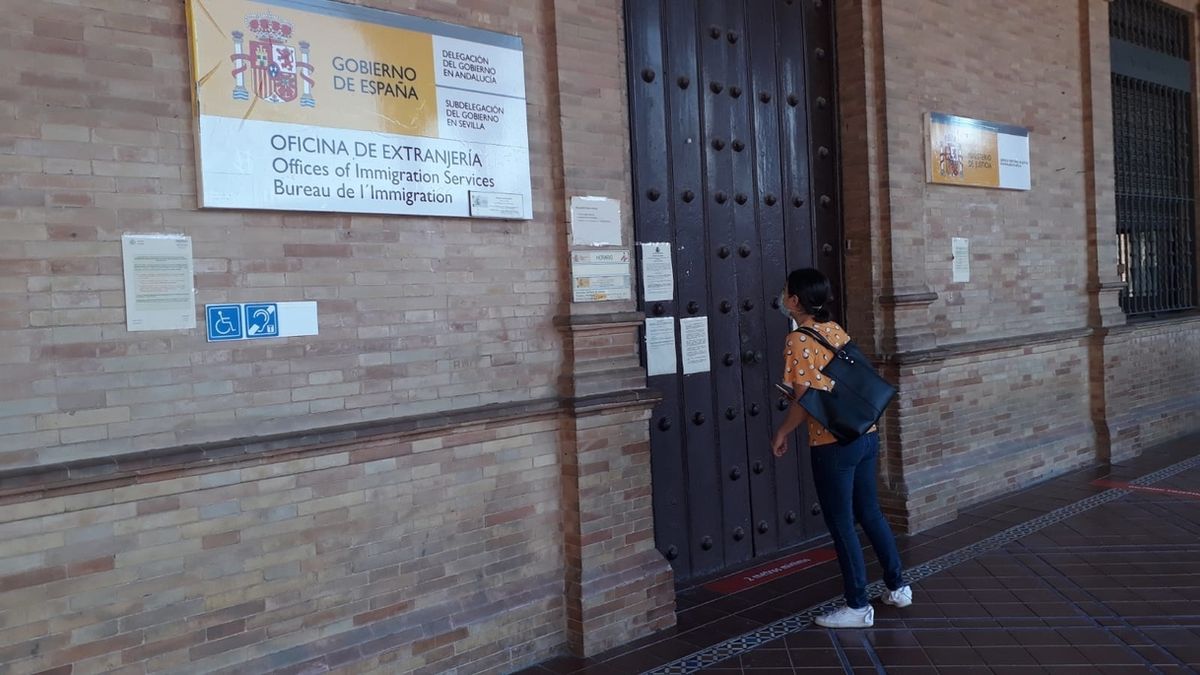
These are the views from Granada.
Hello, Habr! We have long discussed the possibility of stories from people working in IT on our blog. We decided to start with an experimental cycle of materials about IT immigration, language learning and other interesting things. The first story is from an industry colleague who moved from Ukraine to Spain on a student visa five years ago and shares her experience. We hope you enjoy the cycle. Write your opinions, suggestions directly in the comments, we will read and take into account everything, we promise.
: , , 2015 , . . , , , .
. ?
My husband and I have always wanted to live in other countries, but nothing went further than conversations. But then came 2014, and with it unrest in Ukraine. At that time, we had a small child, and in a very short time we decided that we were ready to leave right now. The reason is not politics at all. They just wanted to change their place of life for a long time for a number of reasons, including climate, environmental conditions, quality of life, etc. We chose Spain.
Why this country and moving on a student visa:
- Not far from Ukraine, where our relatives stayed.
- The legality of staying in Europe.
- Possibility to renew the visa on the spot.
- Relatively inexpensive tickets Ukraine-Spain (and even cheaper today - 80 euros in both directions).
- Getting a European education.
- A relatively simple procedure for transforming a student visa into a residence permit.
- Low food / property / rental prices compared to many other European countries.
- Suitable climate.
- Sea, mountains and clean air.
I must say right away that we are remote workers and freelancers, so the presence or absence of work in the place of moving did not really bother us. The main thing is a calm settlement in a beautiful place, with low prices for real estate rent and food. Ultimately, the choice fell on Andalusia. It has a dry climate, stunning landscapes, near the sea and mountains. And the ocean is not so far away - only about 4 hours by car. Another positive point is the relatively inexpensive education. Average cost: about 1000 euros per year depending on the faculty.
The plan for our move was simple: enroll in Spanish courses, study there for six months, and enter a master's degree at some university. According to our calculations, I had to study, and my husband and child were simply reunited with me as a family according to documents. Looking ahead, I will say that it turned out not quite what we expected initially, but, in general, everything worked out
About applying for a student visa
The main problem we faced was the lack of information on the required list of documents for filing. The consulate did not provide any data on this matter, and we searched for available information on forums, blogs and other resources.
As a result, we compiled the following list of documents for a D visa:
- A copy of the apostilled marriage certificate certified by a notary.
- Apostilled diploma and annex, with translation.
- Apostilled police clearance certificate.
- A medical certificate in the form 082, with apostille and translation, is made only in the Alexander Hospital in Kiev. It could not be obtained anywhere else.
- Certificate of income or documents on an account in Spain at the rate of 532 euros per month.
- Spanish policy for medical care.
- Document confirming that you are enrolled in studies, and proof of payment.
- Supporting documents for rental housing from Spain.
- Financial guarantees on my part (notarized document).

In a separate package, I applied for the child on the same day:
- Birth certificate (apostille + translation).
- Financial guarantees (notarized document).
- Spanish policy for medical care.
- Permission to leave the child from the second parent (notarized + apostille).
- .
We opened an account in Spain during a test trip on vacation, while some banks still opened an account according to the applicant's passport. Now this is no longer possible if you are just a tourist. As for financial guarantees for a stay in Spain, here are standard documents: contracts for the purchase of a car, an apartment, a bank account, etc.
The process of apostillization of the diploma in the home country takes the longest. If we take an average, then a diploma until 2010 is apostilled on average about 2 months. To do this, you must submit documents first in the Dnieper, then in Kiev. As a result, this pleasure can last for 3 months. After evaluating all the pros and cons, we found an intermediary firm that managed to do everything in just a week, taking about $ 400 for it. The entire process of collecting documents before submitting to the Consulate took almost three months.
About the Consulate of Spain in Ukraine

Consulate of Spain in Kiev The
website of the Consulate of Spain in Kiev did not contain any useful information at the time of our move, the employees of the consulate rarely respond to letters and in an interesting way, for example:
- Tell me, do you need to apostille your marriage certificate or simply translate it into Spanish?
- Yes.
Tips for communicating with consular staff:
- It is impossible to get the necessary information by phone, only by e-mail.
- In one letter, I recommend asking only one question at a time, otherwise you risk getting an answer only to the last question from the list.
- I recommend communicating with the Ukrainian consulate in Ukrainian. If you write to the consulate in Russian, the probability that they will answer you is, in principle, close to 10%. They answer letters in Ukrainian a little more often, sometimes even sensibly.
Everywhere they write that you need to register to apply to the embassy. After a dozen calls to the consulate itself and visa centers, it turned out that there was no entry for our type of visa. Reception of documents every Thu-Fri from 9:30 to 13:30.
Lawyer
We moved abroad for the first time, so we decided in advance to enlist the support of a local Russian-speaking lawyer. A good specialist was recommended to us. She helped us a lot, plus she went with us to different authorities, since at that time we did not speak Spanish. For 2015, the services of a lawyer in obtaining a student visa cost us about 700 euros. This amount included assistance in collecting documents, registration, etc.
Not without some small problems, for example, we were advised to add a motivation letter and a few more papers to the list of our documents, which were not needed by the Ukrainians, but would be useful to the citizens of the Russian Federation. The application procedure is slightly different for Ukraine and the Russian Federation.
In addition to helping us collect documents, the lawyer helped us find a suitable language school and corresponded with the management, took out medical insurance while we were in Ukraine. We were looking for housing on our own upon arrival in Spain, but at the embassy, when applying, a lease agreement is required. It is very difficult and risky to rent an apartment remotely, so a lawyer signed a lease agreement for us in her own name.
All the apostilles and translations were not done by themselves, but they used the services of the translation company - they simply gave them the documents and received apostilled pieces of paper some time ago. I had to go to the notary on my own.
What happened after the documents were submitted
I was lucky: I applied for a visa, and after 4 days the answer was displayed on the website: "You can take the decision", and without indicating whether this decision is positive or negative. Already upon receipt, I learned that it was positive.

This is how a typical Estrancheria looks like.
A D visa is always given for three months, during which time you need to fly to Spain and register with the Foreigners Office (Estrancheria), where you will be given a foreign student card for the duration of your studies. To extend it, you need to re-submit the list of documents, but already on the spot - in the Estrancheria. Interestingly, in general, the list of required securities is the same, but you can be additionally asked for anything. For example, I was often asked to re-submit a bank account. It got to the point of ridiculousness - the same documents could be asked to bring 2-3 times. Hence the advice: never give originals unless you need to. Documents can simply be lost.

The teaching staff and students of the Delengua courses (Granada)
I completed my Spanish course for foreigners for five months and at the same time I sent documents for admission to a master's program at one of the universities. The decision of the admissions committee was positive, but it soon turned out that the master's program is still not language courses, it was impossible to study at the B1 level in the master's program. Therefore, they made another decision - to continue their studies in the courses of in-depth study of the Spanish language at the Spanish university. In general, it took me about 10 months of daily study of 5-6 hours to master the C1 level.
Later she studied Marketing and Advertising at the Centro formación professional (something like a private college). It was not easy, but very interesting.
How are things today?
Working in Andalusia is still difficult, so I continue to freelance. At the time of this writing, I received a residence for a year without the right to work (which is not needed here), no longer on a student visa. The rest of the family is already in residence. The child speaks fluent Spanish, goes to a local school and, in principle, does not remember himself outside of Spanish society. There is a desire to move to another region in Spain - perhaps Valencia or to the north of the country, to Galicia, for a change of scenery. But we do not exclude moving to some other country, because here we get bored.
I am very often asked the question: is it worth moving to another country? But no one can answer it, except for the one who moves. In our case, it was a very interesting experience that took a large number of nerve cells (stress), but also gave a lot, including impressions, emotions, new knowledge and experience. The only thing is, if you are not going to move on a "golden visa", i.e. do not get a residence when investing several hundred thousand euros in the economy of a new country, be prepared for bureaucracy, spending on lawyers, running around in different instances. It's difficult, but I would say it's worth it.
